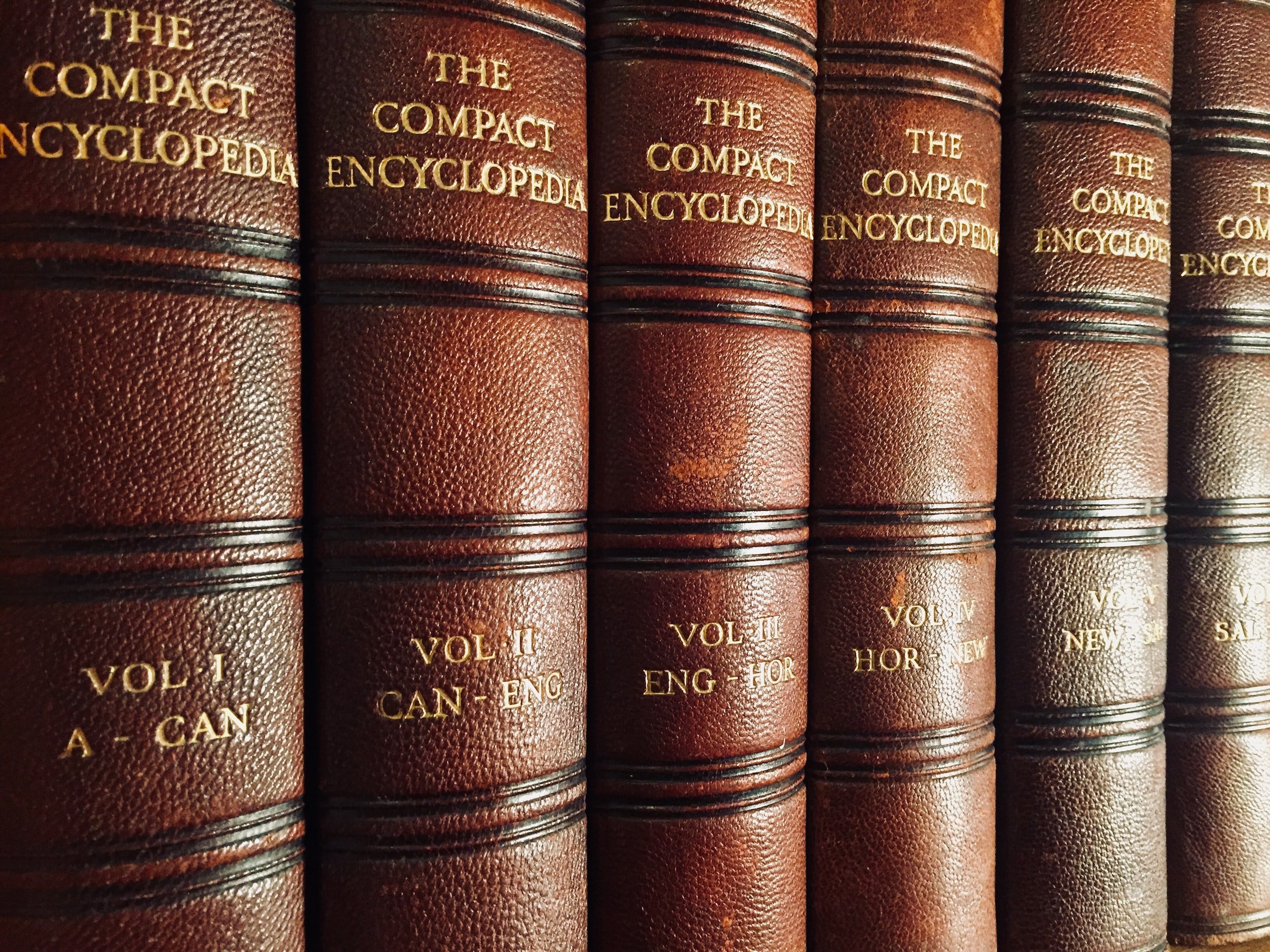
Philosophical notes…
On Reading the Enlightenment
“Darnton approached the history of the book through the publishing trade. Kates, by contrast, is a Trinitarian not a Unitarian. His history depends on giving almost equal weight to authors, publishers and readers. His books are written, printed and read: each element has to be given proper recognition... The result of Kates’s trinitarian approach is that his book is not a history of ideas, nor book history, nor cultural history, nor a study in reception. It is, in parts, all of these, but much more than the sum of its parts. After all, authors and publishers are also readers; and readers, as they write letters and compile commonplace books, are also authors, not to mention the source of publishers’ profits. Only a Trinitarian approach can grasp the complexity of the book as written, printed and read. I hope no future historian of ideas will write about a book printed before the Industrial Revolution without asking how many copies were printed, how much they cost and who actually owned them.”
David Wootton, https://thecritic.co.uk/issues/february-2023/the-enlightenment-as-reading-project/. Interesting review of Gary Kates’ recent The Books that Made the European Enlightenment. It highlights the need for ongoing innovation in studies of complex interactions between readers, writers and publishers, one that can be quite difficult given some of the information isn’t easily available. Nonetheless, it is also worth noting that Darnton’s “communication circuit” and later Thomas Adams and Nicholas Barker’s “socio-economic conjuncture” both recognized the need for apprehending these complex interactions. As I wrote recently, “Darnton placed the book’s production in the exterior circle surrounding intellectual influences, political and legal sanctions, and publicity that overlaps with the economic and social conjunction. By contrast, Adams and Barker invert that relation. Their model’s center is the publication, manufacture, distribution, reception, and survival of the artifacts themselves. The former model maps the book-culture relation as a centrifugal interaction where written artifacts radiate out from the culture. The latter provides a centripetal relation whereby the artifacts themselves are impacted by the culture.” Printing Religion after the Enlightenment, p. 136. It is worth noting that what goes assumed in much cultural history is the model of the human mind itself, which relies on enlightenment epistemologies increasingly questioned by recent cognitive science. Hence, there is a need for new history of the book engaged with situated cognition.
On Slow Productivity
“Slow productivity is all about identifying alternatives. I’m trying to develop this notion of productivity that’s based on, at the large time scales, the production of things you’re proud of and that have high impact, but on the small time scale, there’s periods where you’re doing very little. Right now, I open the book with a story of John McPhee, working on one of his first really complex New Yorker pieces. He spent two weeks lying on a picnic table in his backyard trying to figure out, How am I going to make this piece work? On the small scale, you’re like, you spent all day lying on a table, you’re incredibly unproductive. But zoom out to John McPhee’s career, and you’re like, you’re one of the most productive and impactful writers of all time. So how do you actually work with your mind and create things of value? What I’ve identified is three principles: doing fewer things, working at a natural pace, but obsessing over quality. That trio of properties better hits the sweet spot of how we’re actually wired and produces valuable meaningful work, but it’s sustainable.”
David Marchese “The Digital Workplace is Designed to Bring You Down,” nytimes.com/interactive/2023/01/23/magazine/cal-newport-interview.html. Interesting interview on the need to rethink how we work towards producing things of value in digital workplaces of which universities are increasingly akin. The three principles identified are apropos in my view. Doing fewer things and obsessing over quality are key, but there is a lot that goes into establishing daily practices that support a longstanding natural pace of work. It made me think of bird migration, a mammoth global scale task for some species. Yet when watching them in their element, they seem free and in concert with each other as they move through space and time. Imagine writing the next book with that coincidence of liberty and distraction free purpose. While our current digital predicament carries its own difficulties, it’s also worth noting that the “demon of distraction,” has longstanding historical antecedents as noted in the recent review article of The Wandering Mind: What Medieval Monks Tell Us About Distraction here: .wsj.com/articles/the-wandering-mind-book-review-medieval-history-the-demon-of-distraction-11674232751.
On 17th Century Information Overload
“The word ‘information’ predates Gutenberg (it was invented in the 14th century). But once printing took off and books proliferated, new kinds of books had to be invented to track, organize and summarize the relentless flood of data they generated: encyclopedias, bibliographies, dictionaries, multilingual bibles, summaries, herbals. Oxford’s Bodleian Library was founded in 1598, opened to scholars in 1602 and by 1605 produced the world’s first printed library catalog. Book-review journals began to appeal in the late 17th century, a sign that readers could no longer hope to keep up with the deluge of print. But these reference works were not entirely new or Western: Ann Blair, a Harvard historian of information, finds plenty of examples before Gutenberg and beyond Europe.”
Jonathan Rose, “The Oxford Illustrated History of the Book’ Review: Our Back Pages” - https://www.wsj.com/articles/the-oxford-illustrated-history-of-the-book-review-our-back-pages-11671809077.
On Complexity
“Yet in making questions of human desire strictly identical to numbers, Bhattacharya, like von Neumann, has forgotten a basic truth about the relationship of logic to the complexity of life... Every mathematical rendering of objects that are not purely mathematical is a simplification, an ‘as if,’ and that ‘as if’ should always come with a caution. When you produce or encounter such a logical simplification, do not forget to ask: How ‘sufficiently like’ is the similitude to the object of study? And how do I decide whether the difference is for good or ill? A great deal hinges on the answers to those questions, not least when the simplification on offer is of the human psyche... We need institutions capable of generating such engagements between the different ways of discovering the human, and we need disciplines open to such interactions.”
David Nirenberg, “The World John von Neumann Built” - https://www.thenation.com/article/society/john-von-neumann/.
On Imaginative Research
“Neurolinguists sometimes grumble that we know oh-so-little about language in the brain, and that there is still much to figure out. True, but what has been achieved is remarkable, especially in recent times... Still, there is a risk we take it too far, that we fail to see the difference between genuine aspects of the language calculus in the brain and what we can just model mathematically or simulate easily and elegantly ‘in silico.’ No climate scientist would think a heat wave is a computational process just because they can simulate it in a computer. For those who study the mind and brain, making such distinctions is much harder. Where does the language calculus begin and end? Is it just about syntax, or do we also compute sound and meaning? And what about the rich experiential dimension of language? It is perhaps ironic, but ultimately a blessing, that no calculus, no algorithm, will give us these answers — only clear thinking, open criticism, and tireless, imaginative research.”
Giosuè Baggio, “Finding Language in the Brain” - https://thereader.mitpress.mit.edu/finding-language-in-the-brain/
On Library Myths
“But the library’s reputation as a magical irreplaceable repository of unique items only became solidified after Carl Sagan said on a TV programme that was broadcast worldwide... In eight minutes of television, Sagan invented out of thin air the myths: that the library was a unique institution, with no parallels; that lots of knowledge was lost along with the library; that Hypatia’s death had something to do with the library’s destruction; for that matter, that Hypatia had anything at all to do with the library. All of these are pure fiction, without any basis of any kind. Sagan also repeats a bunch of myths that he didn’t invent: that religion caused the onset of a ‘Dark Age’ and centuries of superstitious ignorance; even the idea that there was still a library in the temple of Serapis when it was destroyed in 391 CE, which is doubtful. How influential is Cosmos? Insanely influential. I talked about this a little back in 2016, but it bears repeating. Many articles, books, documentaries, and videos about the history of science still have no hesitation over citing Cosmos as the only authority they need. This is crazy, because at least half of what Sagan says about history is outright false, but his authority is still seemingly unimpeachable today, forty-two years after the programme first aired.”
Peter Gainsford, “The Library of Alexandria and Its Reputation” - http://kiwihellenist.blogspot.com/2022/11/alexandria.html.
On Apologies
“Rituals of atonement and forgiveness lie at the heart of most religions, a testament to the human capacity for grace… Apology, though, has a different history… The practice of establishing and enforcing strict requirements for public apology is not a human universal. It happens only here and there, and now and again. You see it in fiercely sectarian times and places—like twenty-first-century social media, or seventeenth-century New England… For the things they said—words whispered, grumbles muttered, prayers offered, curses shouted—dissenters, blasphemers, and nonconformists in seventeenth-century New England faced censure, arrest, flogging, the pillory, disenfranchisement, exile, and even execution… Demanding public apologies on daytime television and deeming those apologies insufficient was an occasional thumb-wrestling match between two seven-year-olds sitting on a green vinyl school-bus seat on the ride to second grade compared with the daily, Roman Colosseum-style slaughtering that takes place online. It’s not that people don’t do and say terrible things for which they ought to atone. They do. Some of those things are crimes. Many are slights. Very many are utterly trivial. A few are almost unspeakably evil. But, on Twitter at its worst, all harm is equal, all apologies are spectacles, and hardly anyone is ever forgiven.”
Jill Lapore, “The Case Against the Twitter Apology,” - https://www.newyorker.com/magazine/2022/11/14/the-case-against-the-twitter-apology-matthew-ichihashi-potts-forgiveness-danya-ruttenberg-on-repentance-and-repair. The concluding chapters of Arendt’s The Human Condition, focuses on the broad need for forgiveness in political life.
On Printing Religion
Here’s a recent interview on my book Printing Religion after the Enlightenment for faculti.net - https://faculti.net/printing-religion-after-the-enlightenment/. This is an interesting new repository of brief academic summaries.
On Historical Empathy
“Well, to think responsibly about the past requires thinking oneself into the minds of people who no longer exist, who lived in a world that neither you nor I have ever visited, and who inherited assumptions from their predecessors that are quite different from what we have inherited from ours. What is sometimes called the historical imagination is required to set aside one’s own assumptions about what’s right and wrong—or at least explicitly to acknowledge those assumptions—and to try to see the world through the eyes of people whose attitudes one might find loathsome. That’s not easy to do, but every good historian makes an effort to do that. Now, that doesn’t mean that one suspends judgment and comes away without any preference for one point of view or another. What I’m trying to say is that we can be critical and even ashamed of much of our history and, at the same time, accept that it’s our history rather than to say, you know, this has nothing to do with me because I am indignant or outraged by it. I think it helps to acknowledge that posterity is likely to judge us as fallible or foolish or worse, just as we are inclined to judge our predecessors.”
Andrew Delbanco - https://www.neh.gov/article/open-questions-andrew-delbanco
On Plurality
“All people are different people.”
A pithy summary of the intersubjective imperative of Hannah Arendt’s vita activa. Karl Popper’s paradox of tolerance can also be felt in such aphorisms.










